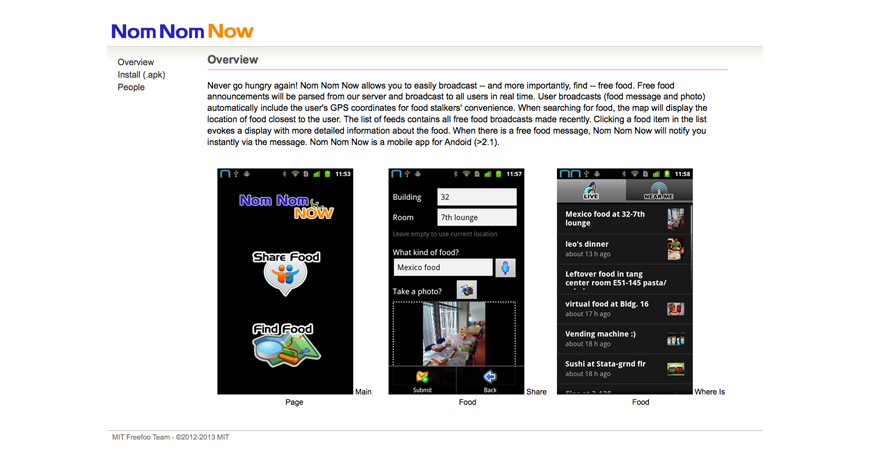
Nom Nom Now – Never go hungry (and possibly miss class due to malnourishment) again! Nom Nom Now allows the user to easily broadcast — and more importantly, find — free food. Free food announcements will be parsed from our server and broadcast to all users in real time. User broadcasts (food message and photo) automatically include the user’s GPS coordinates for food stalkers’ convenience. When searching for food, the map will display the location of food closest to the user. The list of feeds contains all free food broadcasts made recently. Clicking a food item in the list evokes a display with more detailed information about the food. When there is a free food message, Nom Nom Now will notify you instantly via the message.
Team: Chen-Hsiang (Jones) Yu ‘G, David Ogutu ’14, Adisa Kruayatidee ’15.






